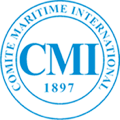Getting to know our Consultative Members – ICS – by Kiran Khosla
Getting to know the International Chamber of Shipping (ICS)
The International Chamber of Shipping (ICS) is the global trade association for shipowners and operators, representing all sectors and trades and over 80% of the world merchant fleet. The ICS membership comprises national shipowners’ associations from over 40 countries and territories, many of which are active members of their national maritime law associations.
Established in 1921, ICS ensures the development, promotion, and application of best practices throughout the shipping industry and is the leading advocate for high operational standards and a regulatory environment embracing safety, environment, open markets and fair competition. ICS articulates and advocates shipowner positions to international regulators most notably, the International Maritime Organization (IMO), the International Labour Organization and other UN bodies as well as to national government regulators and relevant stakeholders.
The role of ICS at Comité Maritime International (CMI)
ICS has long been an active participant in the numerous projects and discussions that have taken place within CMI, formally becoming a Consultative Member when that category of membership was established in the early 1990s. As the global trade association with national shipowner association members who in turn have as their members, individual shipowners from all trades and sectors, (including bulk carriers, oil and chemical tankers, gas carriers, container ships, offshore support vessels, and passenger ships), ICS is in the unique position of being able to provide the crucial perspective of international shipowners on the matters on CMI’s agenda and radar.
Furthermore, ICS and CMI share the common goal of uniformity of maritime law and to this end the two associations have collaborated closely on many important projects over the years. From the early CMI conferences that resulted in the 1910 Collision Convention and the 1924 Hague Rules, where the shipowners’ associations that would later establish ICS were active participants, to the new convention on Judicial Sales of Ships adopted by UNCITRAL last year, and everything in between.
However, it is widely recognised that the development and adoption of an international convention is not the end of the process. In order to achieve uniformity, whenever new maritime conventions are adopted it is most important that national governments then ratify and implement them as soon as possible. Indeed, it is critical for a global industry that the same regulations governing matters such as safety, environmental protection and shipowners’ liability, as well as seafarers’ training and employment standards, apply equally to all ships engaged in international trade, and that the same rules apply during all parts of the voyage. The alternative would be a plethora of regional or unilateral regulations, which would lead to chaos within the international shipping industry while hindering the smooth flow of global trade. For this reason ICS and CMI, through their respective members the national shipowners’ associations and national maritime law associations, are engaged in a long-standing campaign to encourage more widespread ratification of key maritime instruments that would benefit from a greater level of global acceptance. This includes a number of important instruments which have not yet received adequate ratifications from governments to enter into force globally.
As to current ICS activity at CMI, ICS is currently consulting with its national shipowners’ association members in preparation for the CMI Colloquium in Montreal in June. Topics of particular interest to shipowners include the proposed revision of the 1910 Collision Convention, MASS, cyber security and marine insurance. The discussions promise to be interesting as ever. In addition, as a leading proponent of the Unified Interpretation (UI) of the test for breaking the shipowners’ right to limit liability, which was agreed by IMO in 2021, ICS is looking forward to participating in the conference session on harmonising the application of limitation of liability conventions and raising awareness of the UI in the international maritime law community.
